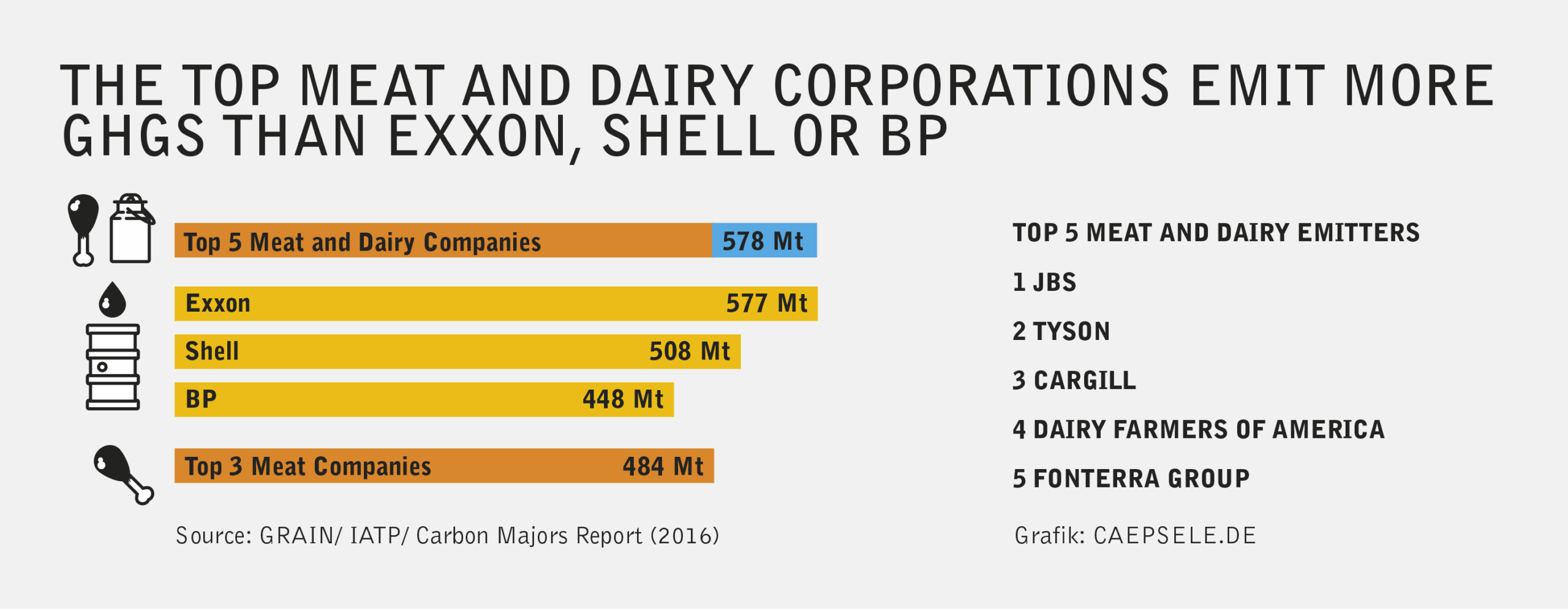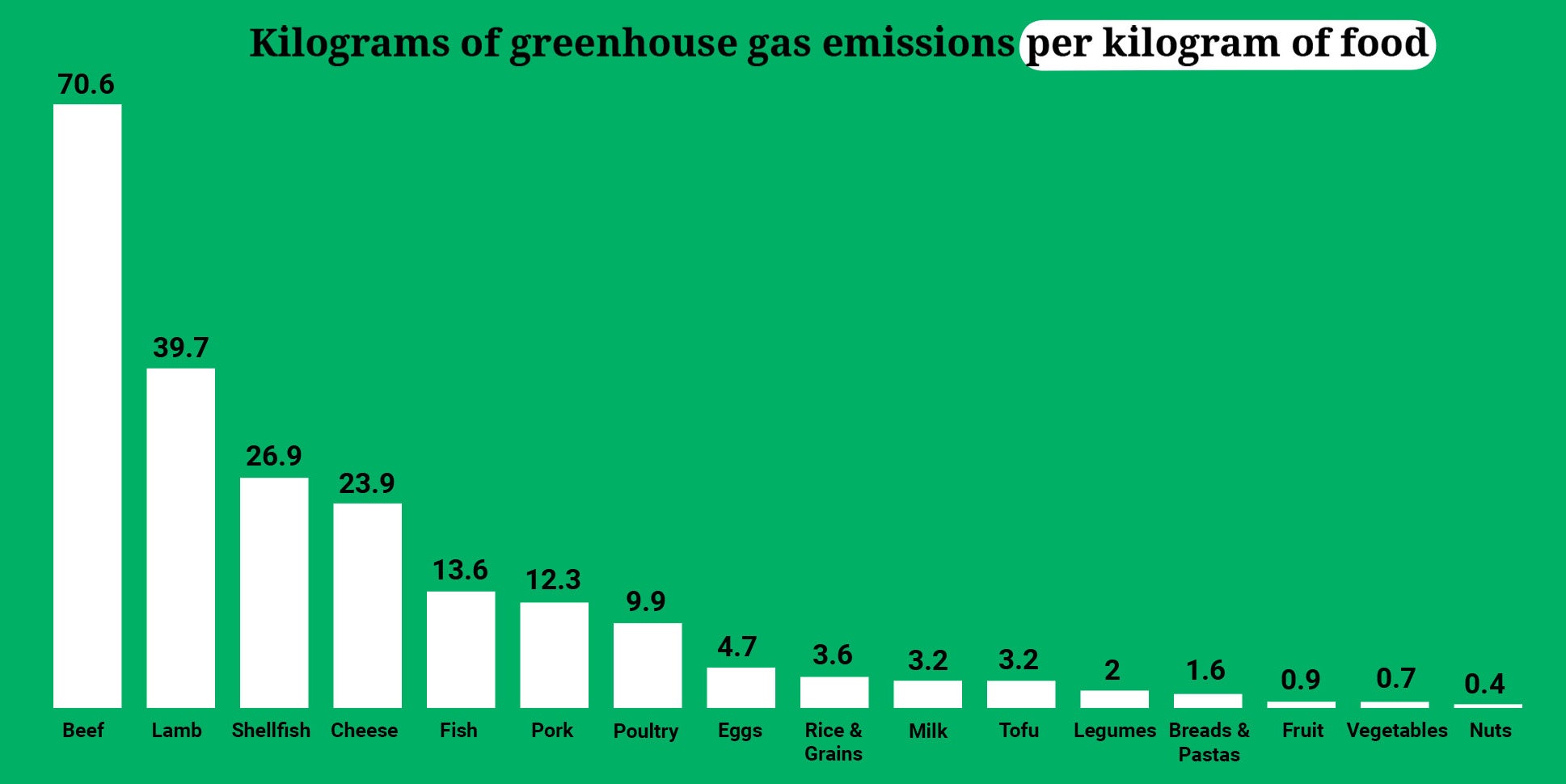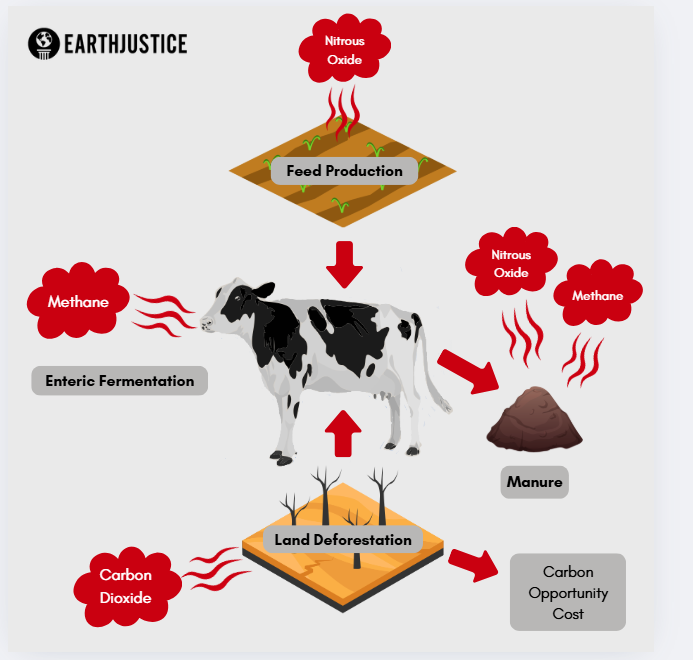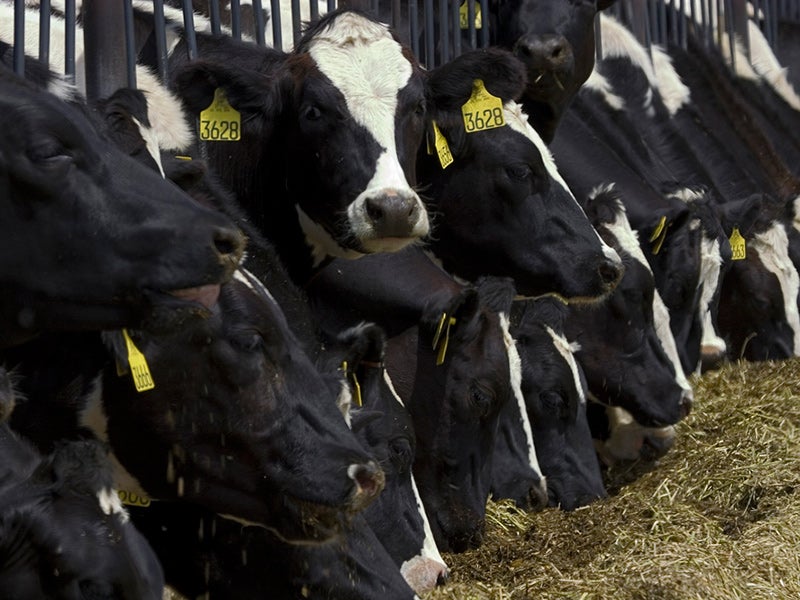The End of a Marketing Mirage: In Settlement of Greenwashing Lawsuit, Tyson Agrees to Stop Making Climate Claims
Given the enormous emissions associated with industrial meat production, beef produced in this manner can never be a “climate-smart choice.” Climate-smart beef is plainly an oxymoron.
For years, Tyson Foods, one of the largest meat companies in the United States and globally, had been claiming that it was on a path to “net-zero by 2050” and that it had a “climate-smart beef” program, that produced “climate-smart beef.” Without sufficient evidence or action behind these claims, Tyson knowingly capitalized on consumers’ well-intentioned purchasing preferences for their own profit and at the expense of our climate.
Thanks to a recent settlement of a lawsuit brought by Earthjustice, along with Animal Legal Defense Fund, FarmSTAND, and Edelson P.C. on behalf of Environmental Working Group, Tyson must stop making these climate claims and refrain from making new climate claims unless and until it can prove to an expert that they are substantiated.
The beef industry has generally acted with such impunity, that these settlements are rare moments of accountability. Due to heavy industry lobbying, most aspects of meat production face weak or nonexistent pollution limits or reporting requirements. So the companies have ample room to make unsupported claims, often with the support of the U.S. Department of Agriculture through the beef checkoff program. We’ve been glad to see media such as the New York Times, Bloomberg, and Reuters recognize that now these companies will have to prove climate claims they hope to make. And that proof will be very difficult due to beef’s enormous climate change “hoofprint.”
The Hefty Emissions Behind Industrial Agriculture
Industrial meat production is a major driver of the climate crisis. Far from growing on bucolic pastures owned by small family farmers, most of the meat purchased by consumers comes from giant industrial livestock facilities known as concentrated animal feeding operations (CAFOs) that are more akin to massive industrial factories than they are to actual farms. These CAFOs produce prodigious amounts of climate emissions. Indeed, the top five meat and dairy corporations combined produce more greenhouse gas (GHG) emissions than ExxonMobil, Shell, or BP:

(Source: Institute for Agriculture & Trade Policy)
And in fact, no other major food group comes even close to the climate emissions from beef:

(Sources: United Nations, World Resources Institute)
Beef production releases tremendous amounts of potent GHGs at every stage of the production process — from growing the feed, to cattle digestion, to manure management. For example, as cattle digest their food, they generate enormous amounts of methane, a greenhouse gas that is over 80 times more powerful than carbon in terms of its warming potential over a 20-year period. At the same time, the production of their food requires vast amounts of fertilizer which releases significant amounts of nitrous oxide, a GHG with a warming potential that is 300 times as powerful as carbon. Adding to this already-massive climate footprint, manure from cattle is stored in huge pits, the management of which releases even more methane and nitrous oxide. And finally, the land use required for animal grazing and feed production is responsible for both releasing tremendous amounts of carbon into the air while also preventing that land from sequestering additional carbon.

Beef production contributes significantly to climate change due to the structure of their gut, cattle exhale methane, a GHG over 80 times more potent than carbon dioxide over 20 years, with every breath. These emissions are the largest source of methane emissions in the U.S. Cattle also produce large amounts of waste and manure management releases both methane and nitrous oxide, a GHG almost 300 times more powerful than carbon dioxide. Feed production uses large amounts of nitrogen fertilizer, which emits still more nitrous oxide. Finally, deforestation and degradation of land for grazing and feed production release carbon dioxide and limit additional carbon sequestration in the soil. (Sources: EPA-US GHG Inventory, Environmental Science & Technology 2011, Nature Sustainability Report 2020, PLOS Report 2023)
Tyson’s Climate Claims: Big Promises, Impossible Results
As the second largest meat producer in the United States and the world, Tyson releases GHGs in amounts that are on par with entire industrialized countries, including Austria, Belgium, Greece, or New Zealand. Meaningfully reducing these emissions would require transformative changes to Tyson’s business operations and substantia investment in research and innovation. Recognizing that consumers are increasingly interested in using their purchasing power to buy more climate-friendly foods, Tyson claimed that it would achieve Net Zero emissions by 2050, and that it had a program that produced climate-smart beef. Our lawsuit challenged both claims as profoundly misleading to consumers.
As alleged in detail in our complaint, Tyson’s public commitment to reach net-zero GHG emissions by 2050 and to produce climate-smart beef amount to nothing more than a PR stunt to capitalize on the interests of consumers who want to buy sustainably. These claims are not backed by any meaningful action on the part of Tyson, who does not even know the full extent of its GHG emissions. Rather than enacting meaningful change to its business operations, thus far Tyson has only thrown (minimal) money at the problem. Indeed, Tyson stated in settlement that it has spent over $65 million on efforts to reduce emissions. This may sound like a lot but for a company with over $50 billion in sales, it’s nothing.
We noted in the complaint that there currently does not exist technology to sufficiently reduce the climate emissions from beef production. Many of these emissions stem from unavoidable issues such as the biology of cows and the need for vast amounts of land.
Indeed, a meat industry scientist at a meat industry conference stated, “I would say it’s basically impossible for the global livestock sector to achieve Net Zero [using standard greenhouse gas accounting protocols]. No, that won’t, I will say that won’t happen, most likely, unless an asteroid hits”. Despite these challenges, we noted in the complaint that Tyson spends a mere 0.2% of its revenue on all research and development, only a subset of which is research into climate-reducing technologies.
As the D.C. Superior Court noted in denying Tyson’s motion to dismiss, the complaint alleges “a fundamental mismatch between the allegedly minimal steps Tyson is taking and the actions that would be necessary to achieve its net-zero goal,” and “even if Tyson were reducing its beef emissions by 10% or 30% as advertised” in its climate smart beef program, “that would only constitute a drop in the bucket of environmental harm that Tyson is alleged to cause.”
Protecting Consumers and the Climate
This settlement of this lawsuit comes just weeks after the New York Attorney General settled a similar greenwashing case against JBS, the world’s largest meat producer — a lawsuit that grew out of our successful challenge of JBS’s net-zero by 2040 claims before the National Appeals Division and the National Appeals Review Board. Under the terms of that settlement, JBS likewise cannot make unsubstantiated claims about achieving net zero GHG emissions.
Consumers interested in climate-friendly food deserve transparency. They have the right to know the truth about the foods they purchase. If companies make eco-claims, they need to back them with rigorous, science-based, feasible and achievable actions and plans.
Collectively, JBS and Tyson produce approximately 50% of all beef consumed in the United States. With these two settlements, consumers will be protected from claims that are allegedly false and misleading made by the largest meat companies in an effort to capture their purchasing power. Perhaps these major corporations will restrain from making unsubstantiated marketing claims and instead focus their time and money on achieving real emissions reductions.
Earthjustice’s Sustainable Food and Farming program aims to make our nation’s food system safer and more climate friendly.
Nydia Gutiérrez
Public Affairs and Communications Strategist, Earthjustice
ngutierrez@earthjustice.org
